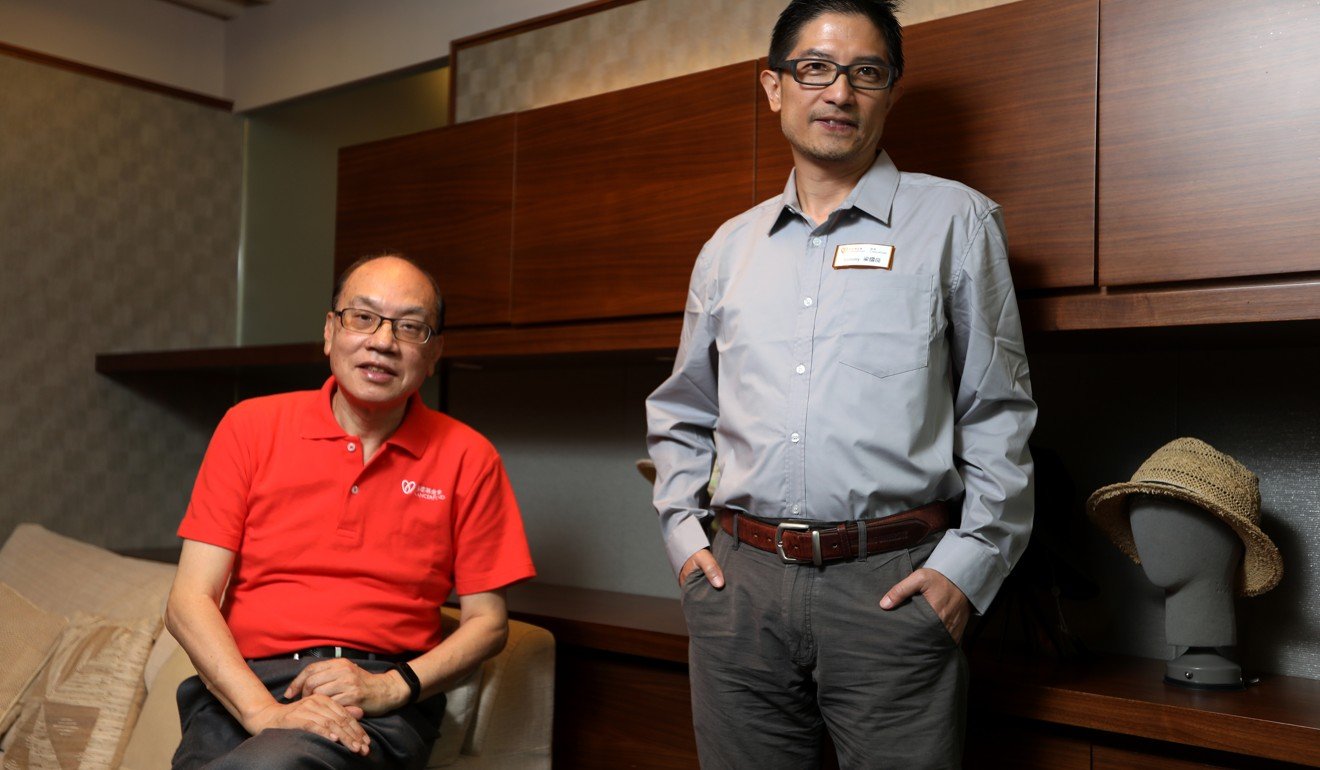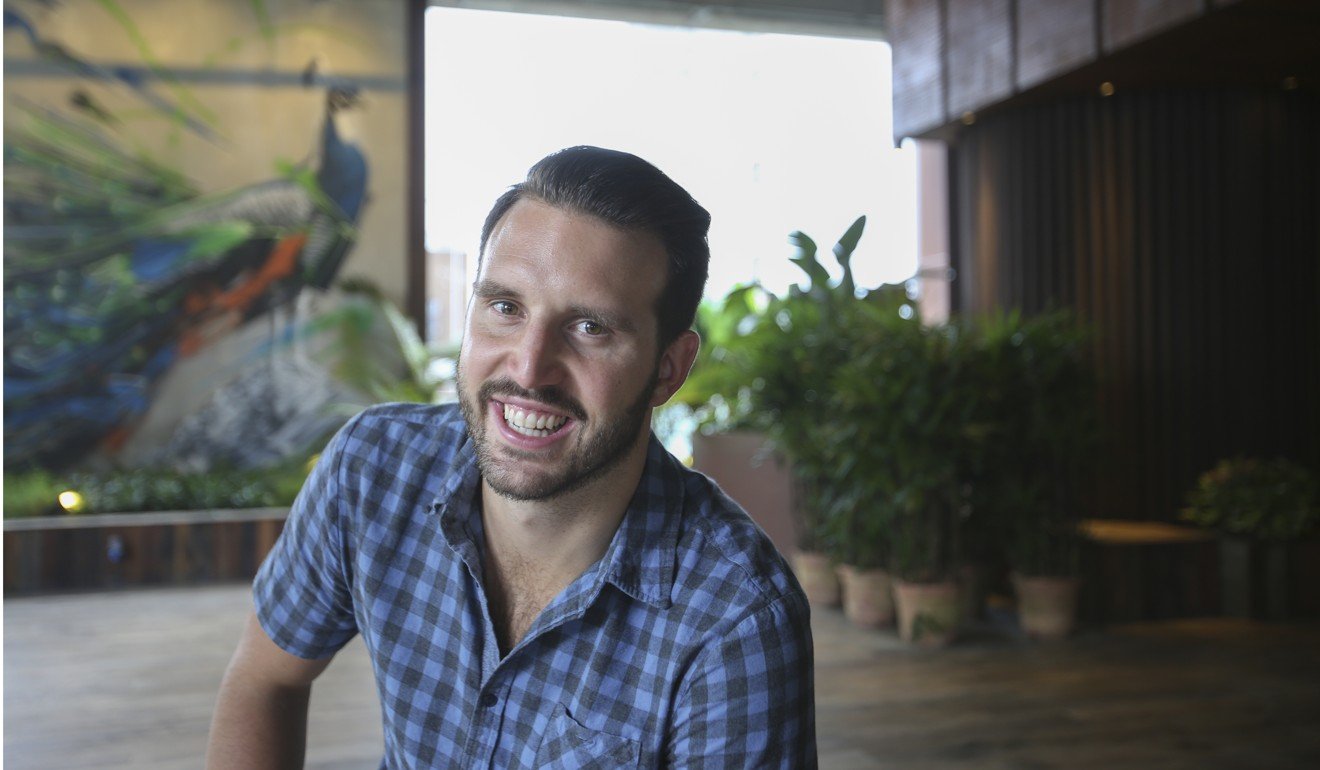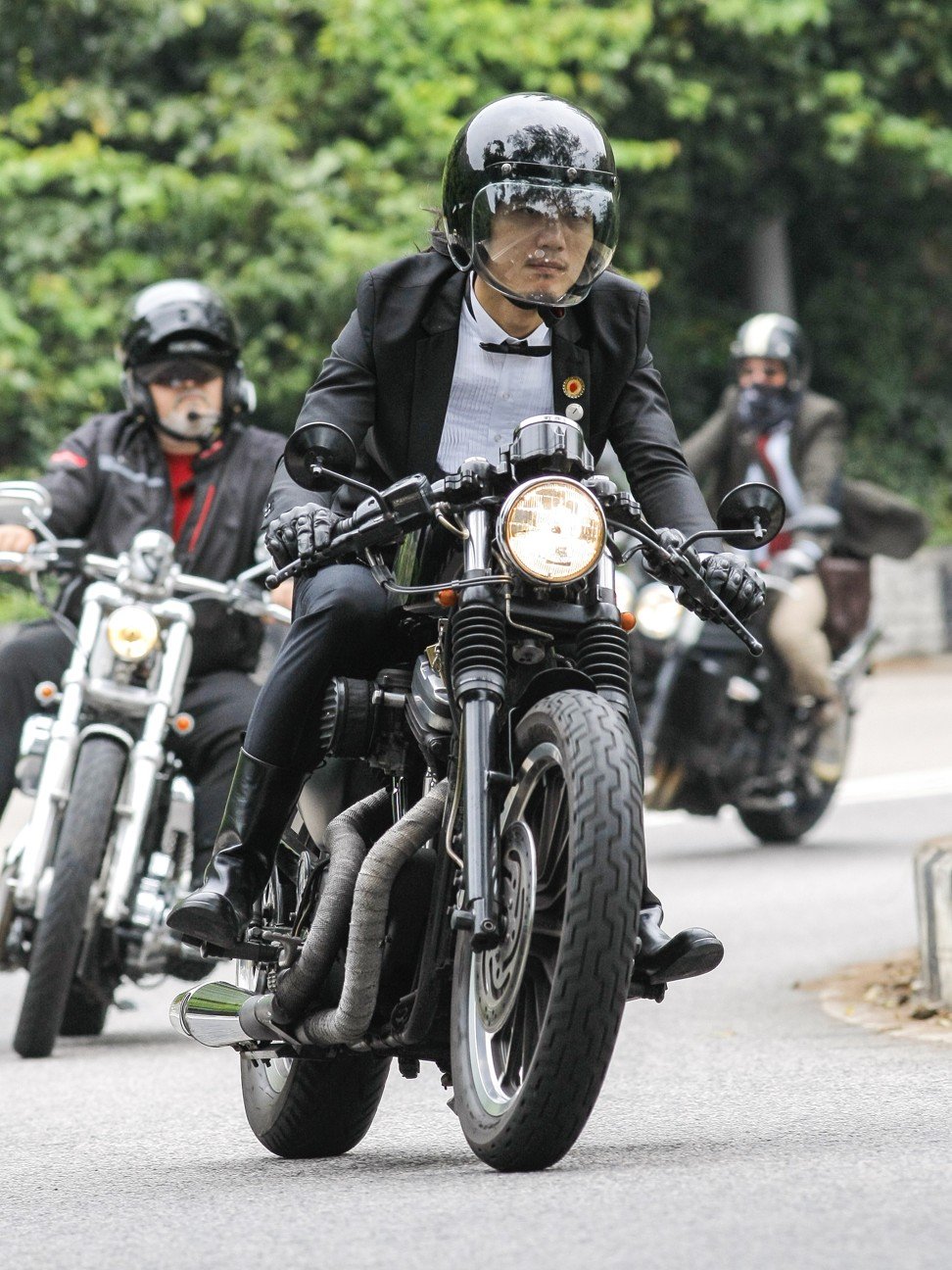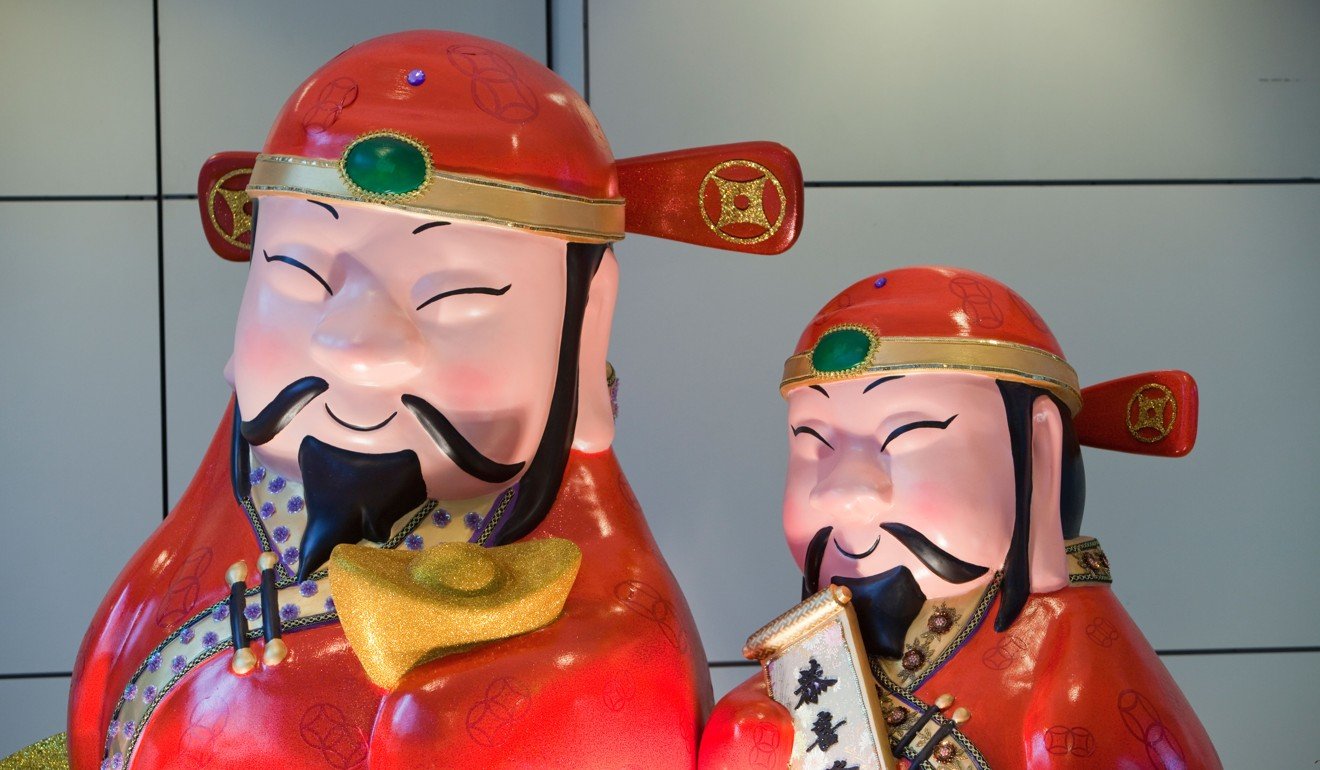Movember and Hong Kong Cancer Fund link-up: not all about the 'mo'
Since its creation in 2004, the Movember Foundation has raised almost US$830 million (HK$6.5 billion) for men’s health initiatives around the globe. Although the charity has become synonymous with people being sponsored to grow moustaches during the month of November, it plans to encourage further participation in the local Hong Kong community by linking with the Hong Kong Cancer Fund (HKCF) – and emphasising that there is more to Movember than the “mo”.
“It’s not all about the moustache, as that’s very limited: it takes off half the population in terms of male and female and, for some people, it can be a challenge,” says James Carlile, 28, a volunteer ambassador for Movember Hong Kong. “Others might have beliefs or their own reasons not to grow moustaches. Movember has diversified in recent years, which has really helped not only bring it out of the expatriate community, but also in terms of gender diversification.”
The students of Chinese medicine using VR to learn acupuncture
Testicular and prostate cancers are the causes most commonly associated with the charity, which also prioritises mental health and suicide prevention under its mission statement: “Stop men dying too young.”
The concept of growing moustaches to raise money grew out of the founders’ observation that men seemed to be less comfortable about discussing their health than women were, meaning some problems were being left undiagnosed and untreated. Quirky and attention-grabbing, sprouting a moustache or another facial hair style proved a sure-fire conversation starter that got people talking about Movember.
“The moustache is always going to be at the core of what we do – it’s our ribbon, our marketing campaign, it’s what we’re known for. And it’s been successful,” says Robert Dunne, Movember’s country manager for New Zealand, while visiting Hong Kong in October. “Doing a charity in a fun, non-traditional way breaks down the barriers between men and health. We are significant funders of men’s health initiatives around the world.”
Prostate cancer, which occurs when cells reproduce more quickly than usual, is one of the most common cancers affecting older men in developed countries. It occurs more in men of African and Afro-Caribbean descent. In the past, prostate cancer incidence has been reported as much lower in Asian countries, though rates have been rising in recent decades due to shifts towards more Westernised diets, according to the World Health Organisation.
When Joseph Lam Boon-wai found himself urinating at night more frequently than usual, it was the first sign that something was wrong in his body. After his symptoms were initially dismissed after a blood test in Canada, where he was living at the time, prostate cancer was finally diagnosed with a rectal exam upon moving home to Hong Kong in 2012.
“They gave me two options: first, to watch and get a biopsy every month to see whether the cancer was active or growing. Second, have an operation or radiotherapy to remove [the growth],” the 71-year-old says. “I was really shocked. I had cancer in my body. You hear a lot about cancer being a terrible thing and I felt afraid. If you have the operation or radiology, there can be a lot of side effects. So I had to go back and think after seeing the doctor. I worried a lot about whether I’d be suffering from pain, or even die.”
Feeling overwhelmed by the decision, Lam looked online to find out more about his condition and the pros and cons of each treatment option. It was during this time that he came across HKCF, the city’s largest cancer-focused organisation. For the last 31 years HKCF has supported cancer patients and their families by providing free information, workshops and support groups, while funding hospital equipment and local cancer research.
After talking to other men who had received treatment, Lam decided to have an operation to remove the cancerous tissue. Due to the prostate’s location near the bowels, bladder and genitals, the treatment can cause side effects that prevent some men from discussing their illness with others, he says.
“When you have prostate cancer, you have incontinence and erection problems – there might be embarrassment,” he says. “At the Cancer Fund’s groups, you can freely discuss all of these problems with others.”
During his recovery, Lam took part in wing chun classes at the centre to regain his strength. Taking part in the martial arts discipline is one way for male cancer sufferers to bond with other men and cope with any insecurity they may be feeling after treatment, says social worker Tommy Liang Kwok-leung, who is also acting assistant centre supervisor at HKCF’s CancerLink Support Centre in North Point.
“When men focus on wing chun, it’s very masculine. Imagine Bruce Lee: he knows how to do martial arts,” Liang says. “By practising martial arts, you get to think about life, suffering and pain. This is how men can cope with their illness.”
Showing weakness in any way, shape or form is a global male issue
Robert Dunne
One local event now affiliated with Movember is The Distinguished Gentleman’s Ride, an annual, sponsored motorcycle cavalcade on Hong Kong Island for which riders wear formal suits. For biker Bay Leung, who has taken part since the inaugural event in 2013 and was among the top 10 fundraisers last year, the ride is an opportunity to raise awareness about prostate cancer after his father-in-law battled the disease.
“It started out with just 20 or 30 bikes, then it got bigger and bigger,” says Hong Kong-born Leung, 40, a graphic designer who perennially sports a goatee with shoulder-length hair. Now that the event has grown to more than 211 registered riders, with more than US$17,000 being raised this year, Leung feels it shines a much-needed spotlight on how men face their health.
“A lot of men are taught to take the pain, be strong, and that seeing a doctor is a sign of being weak. [They think] prostate cancer is such an embarrassment of their ‘macho man’ image. I think we need to educate men that illness isn’t weak,” Leung says, adding: “Don’t be a hero.”
The Movember Foundation’s approach to fundraising might differ slightly from one country to another, but the male fear of showing weakness presents throughout the world, Dunne says.
“Showing weakness in any way, shape or form is a global male issue,” he says. “Women are encouraged to react to things going on in their body and talk to each other, whereas men don’t congregate as much as women and as we get older our group of friends gets smaller. There are fewer settings for us to talk about the significant things in life.”
He adds that he is seeing men being a lot more proactive about their health.
“Our approach is fun as a Trojan horse – the moustache is the icebreaker. You talk about the moustache and it’s all a bit of fun, but if we do a good job over the course of the month, the third, fourth and fifth conversation will be about men’s health. Do you know your family history? Do you know why your grandfather passed away? Have you been to the doctor lately? How is work? What we do in November is significant – it’s not just what we fund, it’s the behaviour we’re encouraging which I believe is probably one of the best pieces of work we do.”
Does diet affect prostate cancer and when should men get tested?
Having been given the all-clear by doctors, Lam now volunteers at HKCF. He acts as a mentor for patients and their families facing similar decisions and experiences, and turning what can often be an isolating disease for men into an opportunity to connect with others. He firmly believes in the importance of communication and socialising as part of battling illness.
“At first, I only discussed my cancer with my wife – I even kept it a secret from my daughter. Now I know that wasn’t right. When I joined the activities with the Cancer Fund, I felt better. Now, I’m very grateful to help others.”
https://ift.tt/2qeBY80






Comments
Post a Comment